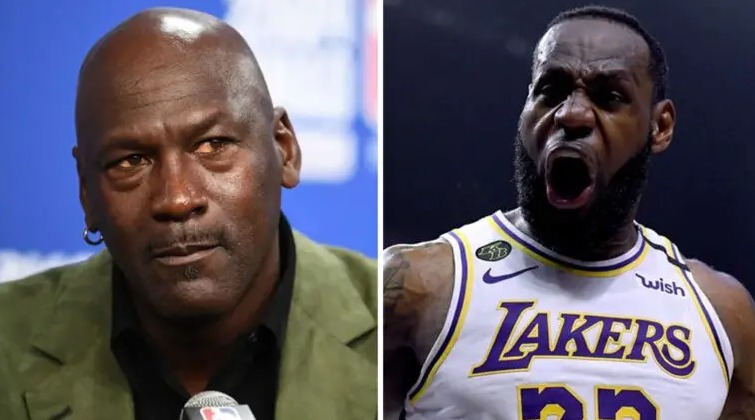In a move that has caused waves in both the sports and advertising spheres, Michael Jordan, the basketball legend and global symbol, recently made headlines by rejecting a staggering $200 million offer to appear in a commercial alongside fellow NBA superstar LeBron James. The reason for Jordan’s rejection? A brief and forceful declaration: “Never with this awake creep.”
The commercial, imagined as a groundbreaking collaboration between two generations of basketball excellence, aimed to bridge the gap between fans old and new. The $200 million deal, a figure that emphasizes the enormous worth brands assign to these athletes’ influence, was expected to be a surefire success in terms of marketing. However, Jordan’s clear response has instead highlighted the deep ideological divides that can exist even among the most elite athletes.
Michael Jordan’s choice to decline the lucrative offer is symbolic of more than just a personal grudge or professional competition. His use of the term “awake creep” to describe LeBron James—a player known for his activism and outspoken stance on social justice issues—sheds light on the cultural and political rifts that have infiltrated not only sports but society as a whole.
Jordan, who during his playing days was famously hesitant about engaging in political discussion, choosing instead to focus on basketball and business, seems to be drawing a line in the sand with this rejection. His decision indicates a broader reluctance among some segments of the public and former athletes to accept the increasingly vocal political activism seen in today’s sports figures.
LeBron James, in contrast, has never hesitated to use his platform to address social and political matters. From speaking out against racial injustice to advocating for voter rights, James has positioned himself as more than just an athlete—a public figure willing to use his voice to make a difference. Jordan’s dismissal of James as an “awake creep” thus raises questions about the role of athletes in societal conversations and the criticism they may face for their activism.
The fallout from Jordan’s rejection and his choice of words has been significant. Fans and commentators are divided, with some commending Jordan for sticking to his principles, while others criticize him for disregarding the importance of social activism in sports. The incident has reignited debates over whether athletes should “stick to sports” or use their platforms to advocate for change.
Moreover, this event has sparked discussions about the connection between personal beliefs and professional partnerships. The refusal of a $200 million deal on ideological grounds emphasizes the potential for significant financial decisions to be influenced by personal values and convictions.
Michael Jordan’s decision not to participate in the commercial with LeBron James, and his explanation for it, highlights the complex interaction between sports, politics, and personal identity. It serves as a reminder that the world of professional sports is not immune to the ideological conflicts that define our era.
As society continues to wrestle with issues of social justice, equality, and freedom of expression, the roles that sports figures like Jordan and James play in these discussions will undoubtedly continue to be a point of debate and interest. The incident also underscores the evolving expectations of athletes to be role models and advocates, a trend that shows no sign of slowing down.
In conclusion, while Michael Jordan’s refusal to collaborate with LeBron James on a $200 million commercial might initially seem like a missed opportunity for a historic partnership, it instead invites critical reflection on the values we uphold and the individuals we admire. It’s a strong reminder that behind the highlights and championship victories, athletes are individuals with their own beliefs and the ability to influence public discourse— for better or for worse. As the boundaries between sports, politics, and personal convictions continue to blur, the decisions made by athletes off the field will remain as impactful as their performance on it.
